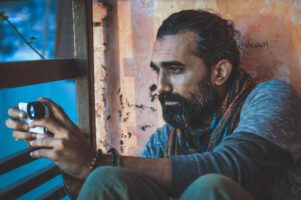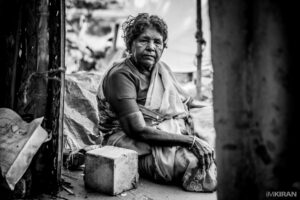
It was something unexpected for me even after experiencing three different disaster zones in Asia. Actually it was a harder as the Nepali are proud people and don’t easily open up to you. It took awhile to find the balance of understanding someone who lost a parent, a child or those surviving the earthquake today. How is life for them today?
It’s been almost one week since I’ve been in Kathmandu, I got a hostel here in Thamel, a place where all backpackers go, a place where you are welcomed by many shops, local food stalls, spitting passersby and hocking on the streets. I was very excited to see the destroyed tourist spots which the media has been reporting since the earthquake happened. The next day I went out for my first walk about.


DURBAR SQUARE
A popular tourist spot where ancient old temples, royal palaces and a place where historically it dates over several centuries. My first impression? It wasn’t an easy sight, painful to look at but at the same time I was amazed. At first it was shocking to see but then it just becomes natural very quickly as locals went on with their daily routine, beggars hanging around looking for tourist, tour guides working and students walking pass taking selfies.
I felt really confused by the reaction of many here. Maybe as it’s a tourist spot not homes of locals. Maybe people are not shocked with loosing an old monument as much as loosing your own home, loosing a life and their belongings.


“I’ve been living in this neighborhood for more than 50 year now and this is the first time I seen a disaster this big. Everyone in Nepal is effected, we all know someone that had lost someone, their home or shop.”
“How about your house?”
“I live right next to this house behind me, we were so lucky that only a little was damaged, we moved downstairs as the 3rd floor was shaking badly. We all came out but it was so difficult to even stand. I guess my house was stronger that this one.”
“So how are you dealing with this now?”
“Are you a government reporter?”
“No I’m not, I’m just a freelance.”
“Ah okay, you can look for yourself, it’s been 3 months, we are all just waiting here. The government is still not doing much, they have this election coming so I guess they will wait to see who will be in-charge of this area and the funds. We didn’t even get anything, but I hear the rural areas got a little money, that’s all. The public funds are being collected but I’m not sure where it’s being used.
All we hear are funds being collected by government agencies but still nothing is happening. Look at this house, they cleaned it up so the roads are cleared but then everyone left, the owner moved to a relatives place as they lost everything.”

KATHMANDU
As I walked around more, as I spoke to more locals who witness the natural disaster, I soon realize something. Kathmandu is a city, the capital. Those who live here are mainly coming from other small towns and villages.
They work here, they study here, some have lived around the city for a long time but the city has been changing, they had lives even before the earthquake, desperately working to find an income, hoping to succeed in their dreams for a good career, to continue studies or just living to survive. The earthquake didn’t change their present status of life, it didn’t make past pain disappear. Time didn’t stand still for them.


Their dreams are still the same, their monthly bills are still there, exams are still happening, beggars still need to beg and thieves will still need to steal. Nothing changed yet things are different. Different as everyone knows someone who lost a home, you know someone who lost their lives or a child, every local here has family back in the small towns or villages who has lost everything.
Every local or child here has experienced death around them. Life has changed in a way that it created a new ripple effect.
A taxi driver, Shankar, “I have a sister and uncle living in Bahrabise, Sindhupalchok, it is very bad there as all houses were destroyed, many died there too. You should head there if you want to see worse areas.”
“How far is it from here?”
“Oh not so far away, you can get there by bus if the roads are open, there might be landslides, maybe around 6-8 hours. Look for my sister there, Savina Shrestha, she is safe and living in a tent now. Tell her I sent you, and send my regards to her please.”
There are worse areas than this?

So I made up my mind to go up north, not knowing how and when but I am going. I know why I’m here, I want to look for this families that will need help with aid, to document their lives today and to be present with them. I want to live among them. Nepal is my home now, and I would backpack across Nepal just to discover more lives.
I met this group of students while walking around Durbar Square and they had something beautiful to say.

“These bricks are from the temples and old royal palace, they are very very old. Like many centuries. Look at the dates here on the bricks, can you see it? We are very happy that the bricks are safe, as now we can rebuild Nepal again. This is our history. Every little brick.”
This are their hopes and dreams.
The next day, while I was having breakfast in the hostel, an American backpacker Mai, came and shared the table with me. As we started chatting and she mentioned that she has been going into Sindhupalchok for her research as a volunteer. Sindhupalcok? The same place the taxi driver told me to go.
So I immediately asked if I could join her and she agreed! I made a new friend. So the next day we were heading to Chautara, a small town capital in Sindhupalchok, by bus at 9am.

It states 1h 35mins on the map but it took us 4 hours by bus, you can’t trust google map when it comes to local transport in 3rd world countries, especially driving through mountain roads.

CHAUTARA
The capital town Sindhupalchok of central Nepal, Chautara, a small town with tiny brick shops, muddy streets with goats, farmers, rice terraces and beautiful scenery of the mountains. It’s a town where every one knows another. Where you have your daily morning chai in a small wooden hut, with Didi (Lady that runs the shop). Families here grew up together, a place where you say – “I’m going back home.”
Here is my first view of the town the moment we got off the bus.


Yes, I felt the same way. Shocked and a helpless feeling of not knowing how exactly did these people survive this. This is the work of mother nature. They lost everything within this one moment, their homes, many lives, source of livelihood, even personal items like books, kitchen wear, beds, chairs.. everything. Most locals here were only left with what they had on them, their clothes.
After settling in the local government child welfare office, thats where we had to find a place to sleep, my shelter for the next few days. I went out daily to meet more locals and discover more about their lives here today.

It wasn’t an easy task. Locals here are very independent, proud, religious and keep among themselves. I knew it was going to take more than the usual ‘chatting’ to get closer to them and spending time to understand what life was about today.
My mission was to document their lives and share the voices of the locals here. For the next 3 days I went out daily to speak to locals, locate some families that needed aid or just being present with them. Help that’s truly needed like shelters, food aid, clean drinking water, clothes, tents, baby items and more. All I was thinking is what would I need if I lost my home and belongings?

RELIEF AID
It’s easy to forget what actually happened here, it’s easy for us to move on with our lives when others here still suffer and wait for help to come. We only depend on what we hear on the news or by big media networks, as they move on to the next big scoop, we move on with our daily lives. We go on with our routines of the day as the locals here wake up each day seeing their destroyed hopes and dreams.
But as a close community, they are resilient, they have a close bond that keeps them going. I’ve seen some families getting started with rebuilding of their homes, not waiting for help to come, as they know… help will not be coming any time soon.

But the reality is families here are still living and surviving after the earthquake, families here are still suffering, looking for shelters, waiting for food to get to them and some are still finding bodies of those they lost.
With any natural disaster in Asia, as I’ve seen it happening in the Philippines Typhoon Haiyan, the Malaysian East Coast Floods, and now the Nepal Earthquake, it is always the same way of life, a rich are getting richer with bigger contracts, the government ignores making any kind of direct help as they keep themselves busy with red tapes, political gain, money laundering, corruption, greed of one or two rich ‘families’ ruling the party but the fact of the matter is… “The Poor Just Got Poorer.” So who is listening to them?

“I am living here for 3 months now, we don’t know what is going on, we don’t know when I will get a new house and we don’t know anything.”
I lost my house, I lost my shop and I lost my income. I stay here and I buy my own food to feed my kids.
(Half of that was her ranting in Nepali, I only understood her frustrated face)
“Your own food? NGOs or local Nepali government don’t give you food aid?”
“No then don’t! We buy our own, we are on our own here. They gave us this tents and water. That’s all! Some of us even have to build our own houses too, like small shelters. No one is going to help us but ourselves.”
So keep this thought with you when you wake up today to have your morning coffee, when you take a shower with that scented soap, when you drive your cars to work and when you pay 50 bucks for a nice dinner with your loved ones or even when you just switched on that lights… keep these families in your thoughts too. Remember the families here who have lost their homes, who have lost a love one, who have no food to eat, children who have no eduction and parents with no income.


As the universe is our creator, as all the gods have guided us, we are only human beings living in the same space and time together. We are merely visitors here for this short time period, we breathe the same air, we seek the same happiness, we are all children of the same path.
So make this day to remember all living beings that are suffering today, remember the Nepali children, families, mothers, sisters, brothers and fathers, don’t let the world forget them.
Share this love, share humanity and share this equality of a human right. Your actions will make a difference to them.



